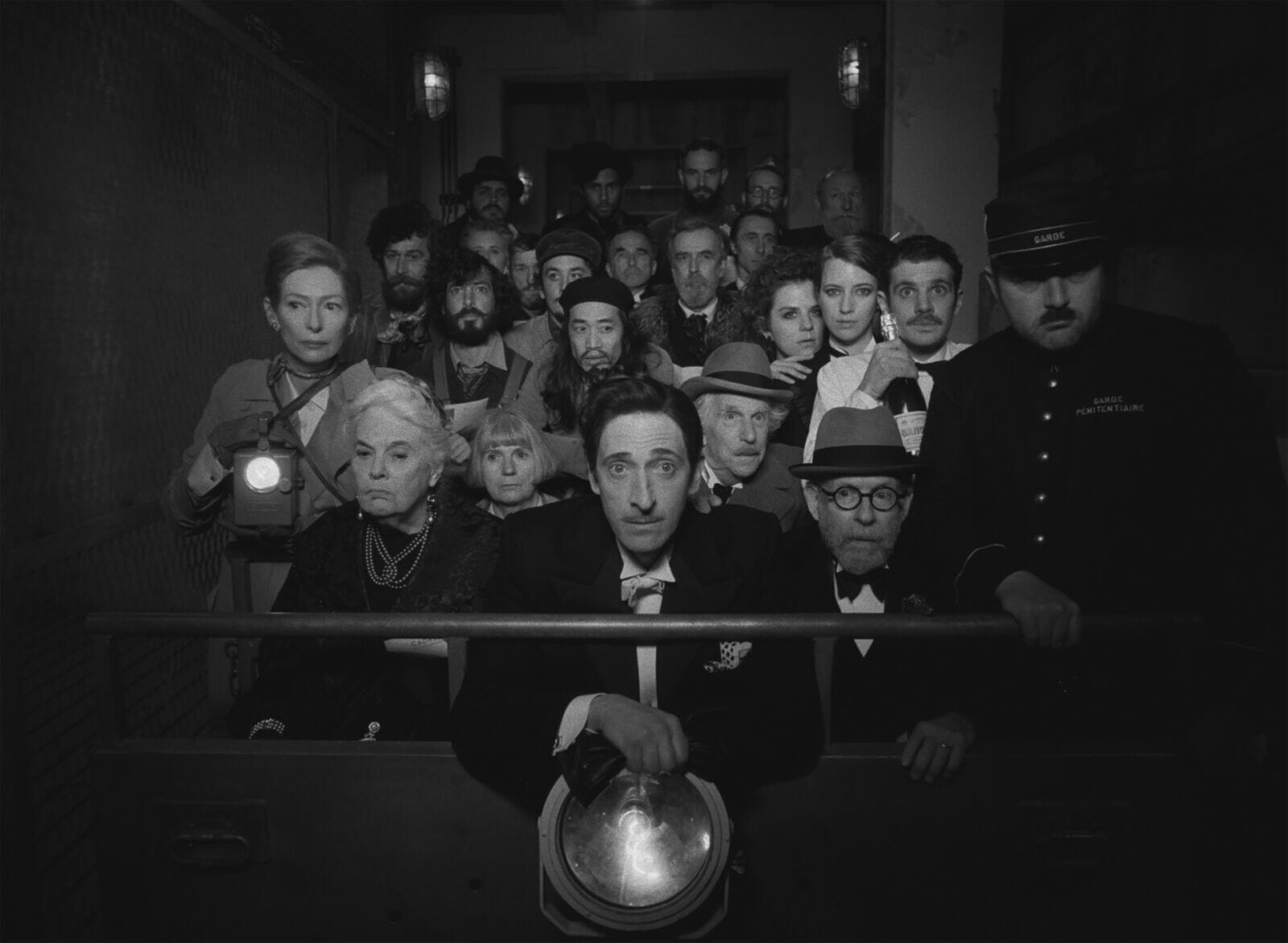Few directors have more fun with formalism than Wes Anderson. Every shot of his films is a story unto itself: color, composition, and movement as genre, plot, and prose. Detractors say it’s style over substance; defenders say it’s style as substance—either way, there’s style popping out of every frame. The French Dispatch, Anderson’s love letter to The New Yorker, is barely over 100 minutes, but that’s hundreds of thousands of frames arranged with meticulous glee. If a picture is worth a thousand words, The French Dispatch is worth your average New Yorker article.
The film brings to life three articles from The Evening Sun, a magazine distributed in Kansas but headquartered in France. Not in some hoity-toity, widely known part of France, mind you, but in the fictional city of Ennui-sur-Blasé, where life is as monotonous as Kansas but at least more European. The journalists of The French Dispatch—some of which are based on renowned New Yorker writers—plumb the ordinary for the weird and beautiful, and Anderson curates their stories into a wild, wacky anthology. It’s fiction within fiction, an ideal playground for the auteur of absurdist artifice.
READ ALSO: Villeneuve’s ‘Dune’ might be best version possible
The anthology approach, with its cavalcade of characters, allows Anderson to conscript nearly every actor he’s ever worked with. The cast is unbelievably stacked. We’ve got Anderson mainstays like Murray, Brody, Wilson, and Schwartzman; acclaimed names like Swinton and McDormand; and exemplars of Hollywood past alongside newcomers like Chalamet and Ronan. Even that sampling is woefully incomplete. For such a wide range of actors, it’s remarkable how tuned in they all are to Anderson’s vision. Wes is well-known for his command of the frame, but The French Dispatch also highlights his performance direction—he has a veritable village stepping in time to his distinct, oddball beat.
The standouts among the cast are Chalamet—outdoing his Dune performance the weekend of Dune’s release—and Jeffrey Wright, who channels James Baldwin for a story about food, family, and kidnapping. But everyone’s in fine form here. Anderson most of all: his shot composition is busier yet more flawlessly constructed than ever before. There are delightful dips into animation and black-and-white photography too. There’s so much going on in each shot—all wrapped in lively, sumptuous production design from Adam Stockhausen—that you’ll wish the film gave you more time to take it in. If moments of pause were breaths, The French Dispatch would surely suffocate. Lines of dialogue and visual gags fly by without sufficient time to appreciate them. The cumulative effect is akin to a sugar rush, glorious in the moment but inherently transitory.
The same can be said for the sentiment. The French Dispatch is rich in Anderson’s emotional trademarks—his signature melancholy especially—but they’re felt at more of a remove than usual. The notion that Anderson’s films are “emotionless spectacle” has been levied against him for years, almost always unfairly, so it’s important to note that his latest isn’t some beautified husk. It can, however, be difficult to connect with. It’s an issue of both pacing and structure. Speeding through the stories leaves little time to process them, and when the emotions come to a head—at the climax of each story, naturally—it’s already time to move on to the next part of the anthology.
There’s connective tissue between the entries, though: Anderson’s awe of creative troublemakers. The French Dispatch has a real respect for well-intentioned rabblerousers. They may be so embroiled in Andersonian eccentricity that it’s hard to translate their virtues to the real world—a scene celebrating a French army deserter is presented as a flashforward to an English-language adaptation of a musical based on their life, for example—but the film’s interior world is so finely crafted that their virtues matter enough therein. Ennui-sur-Blasé and its denizens are fashioned with irresistible care; spending time with them is bittersweet fun regardless of the film’s lasting power. The French Dispatch is a perfect little snow globe: it’s a mere curiosity from the outside but living in it is like Christmas. You may not leave the film swelling with feeling, but you’ll have a helping of nostalgia for a place that doesn’t exist.
★★★½ (3.5/5)




